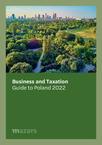Attractive and stable economy
Poland’s economy is one of the most developed in Central and Eastern Europe. The country boasts solid macroeconomic fundamentals, has relatively high growth potential, and a strong labour market. Poland’s economic growth averaged just above 3% over the past decade. Poland is a member of all the organizations and unions mentioned below, providing the country with more security and economic opportunities: OECD, NATO, EU.
Strategic location
Poland has a good access to Weastern and Eastern European markets, which makes it a perfect location for companies doing business and wishing to export their products both to the East and to the West.
Diversity of sectors
Constant development of the Polish market and rapid growth of internal consumption opens up opportunities in a variety of sectors. One of the sectors that have flourished in recent years has been the gaming sector, with Poland being well-known as one of the most important producers of video games in Europe.
Highly educated and qualified workforce
Poland has a large number of young educated workers with foreign language skills, at the same time remaining a country with one of the lowest labor costs in the European Union.
Financial stability
Poland is a financially stable country. Its general government gross debt as % of GDP was 53.8% in 2021 compared to the EU average of 88.1%. Moreover, compared to other EU countries, Poland remains the sixth economic power. Despite the crisis caused by the Covid-19 pandemic, Poland had a stable economic situation compared to other European countries.
Innovations
According to the Bloomber Innovation Index 2021*, Poland was ranked 23rd and scored a total of 73.38 points out of the possible 100. Poland was ahead of countries like: Hungary, Slovakia, Greece and Spain. Poland came out especially well in sectors such as: R&D intensity, productivity, tertiary efficiency, researcher concentration and high-tech density.
"Business and Taxation Guide to Poland 2022" prepared in partnership with Ebury is intended to answer some of the essential questions that may arise when establishing and operating a business in the country. Before making any decision or taking any action that might affect your business, we recommend you to consult a qualified professional adviser. Mazars in Poland team will be pleased to discuss specific problems with you.
Цей веб-сайт використовує файли cookie.
Деякі з цих файлів cookie необхідні, а деякі з них допомагають нам проаналізувати наш трафік, розмістити рекламу та забезпечити вас можливістю отримати індивідуальний досвід.
Для отримання додаткової інформації про файли cookie, які ми використовуємо, зверніться до нашої Політики конфіденційності.
-
Цей веб-сайт не може функціонувати належним чином без цих файлів cookie.
-
Аналітичні файли cookie допомагають нам покращувати наш веб-сайт шляхом накопичення інформації про його використання.












